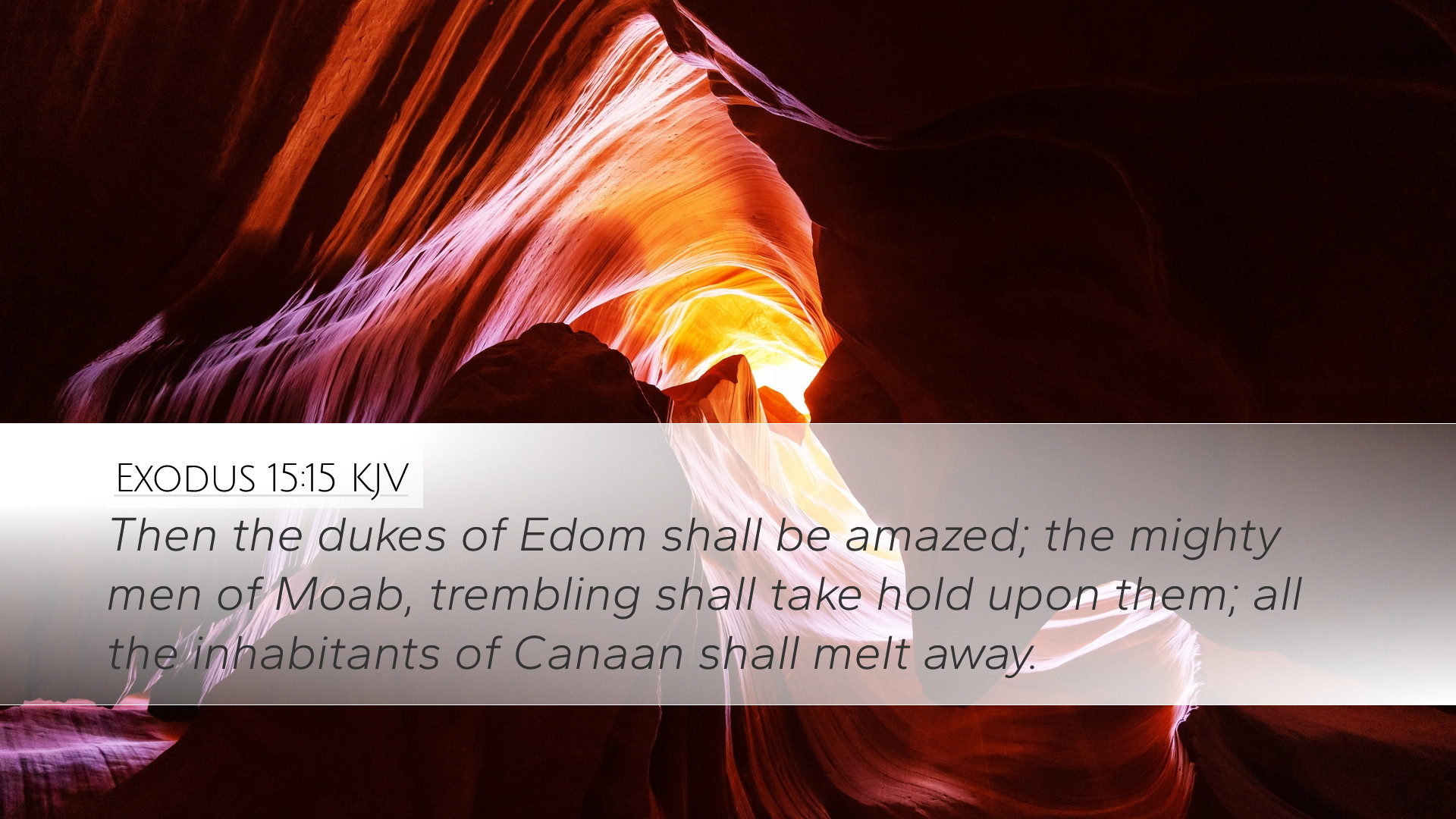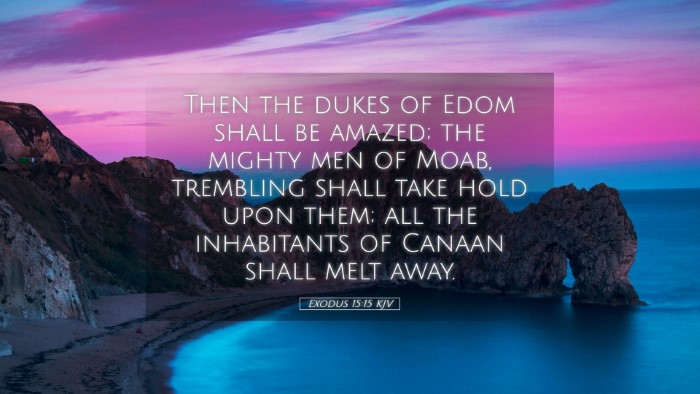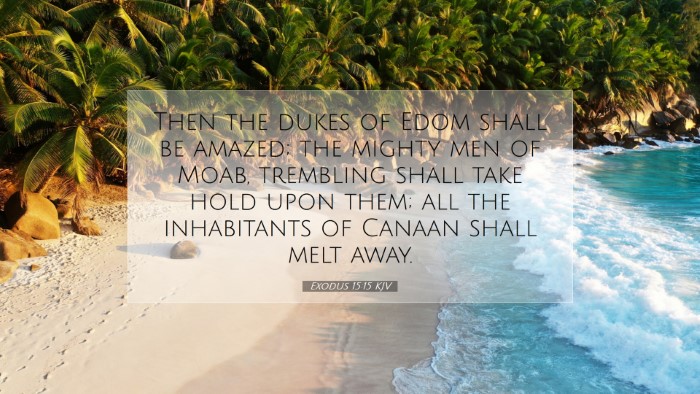Exodus 15:15 - Commentary and Insights
Exodus 15:15 states:
"Then the chiefs of Edom were dismayed; the mighty men of Moab, trembling shall take hold upon them; all the inhabitants of Canaan shall melt away."
This verse occurs within the Song of Moses, a poetic celebration of Israel's deliverance from Egypt and their subsequent triumph over their enemies. The mention of Edom, Moab, and Canaan reflects the geopolitical landscape surrounding Israel and emphasizes their divine protection and power.
Contextual Understanding
Exodus 15 can be understood within the larger narrative of the Exodus. After God manifested his power through the plagues and the parting of the Red Sea, Moses and the Israelites celebrated their liberation. This passage serves as a prophetic warning and a declaration of Israel's future dominance over neighboring nations.
Insights from Public Domain Commentaries
Matthew Henry's Commentary
Divine Fear: Henry emphasizes that the fear that comes upon the nations surrounding Israel is a direct response to witnessing God's miraculous works on behalf of His people. He asserts that those who are distant from God live in constant fear of His power.
Emphasis on Chiefs and Mighty Men: Henry notes that the reference to the "chiefs" of Edom and the "mighty men" of Moab provides insight into the societal structure and reveals that even the strongest of men and those in authority are rendered powerless before God.
Albert Barnes' Commentary
National Fear: Barnes elaborates on the theme of national fear among Israel's enemies. He describes how God's intervention instills dread into the hearts of those who oppose His people.
Prophetic Tone: According to Barnes, Moses' song carries a prophetic tone concerning the fate of the nations surrounding Israel. It indicates not only their immediate fear but also anticipates their more significant downfall as God's favor rests upon Israel.
Moral Implications: Barnes calls attention to the moral implications of divine judgment and highlights that the dismay felt by these nations is a consequence of their rebellion against God. He suggests it serves as a warning for all nations regarding the consequences of turning away from divine commands.
Adam Clarke's Commentary
Historical Context: Clarke provides a historical context by reminding readers that the enmity between Israel and these nations has roots in their past interactions and conflicts. He points out that the prophetic dread experienced by these nations is grounded in their awareness of Israel's covenant relationship with God.
Symbolic Interpretation: Clarke interprets the melting away of the inhabitants of Canaan as symbolic of the eventual conquest of the Promised Land by Israel. He emphasizes the confidence that God's people should have in divine assistance as they face formidable enemies.
Theological Themes
- Divine Sovereignty: This verse illustrates the overarching theme of God's sovereignty over the nations. It reaffirms that God not only chooses a people for Himself but also exercises dominion over all creation.
- Fear of the Lord: The response of fear demonstrated by Edom and Moab serves as a reminder of the appropriate reaction to the presence of God and His works, reflecting the biblical notion that "the fear of the Lord is the beginning of wisdom" (Proverbs 9:10).
- Hope and Assurance for Believers: For the faithful, this acknowledgment of fear in enemies serves as a source of hope and assurance that God defends and fights for His people.
Practical Applications
- Encouragement in Times of Trials: This verse can encourage believers to find comfort in God’s presence and power during challenging circumstances.
- Awareness of Spiritual Warfare: It serves as a reminder that as Christians engage in spiritual warfare, they are assured of God's victory over adversaries—on both personal and communal levels.
- Call to Holiness: This passage also invokes a call to holiness and reliance on God, reminding the faithful that obedience to God’s will is paramount for experiencing His protection and favor.
Conclusion
As we reflect on Exodus 15:15, we are confronted with the power of God in both liberation and judgment. The reactions of Edom, Moab, and Canaan illustrate God's ability to instill fear in those who resist Him, while simultaneously providing comfort and assurance to those who trust in His promises. Both scholars and practitioners are invited to embrace these insights as they seek to deepen their understanding of God’s unfolding narrative in Scripture.


